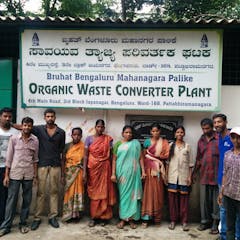
Articles on Sustainable development
Displaying 1 - 20 of 148 articles

Through collaboration and resource sharing, smallholder rice farmers can enhance their productivity and achieve a fully mechanised farming system.

Agricultural sustainability is as much about power and sovereignty as it is about soil, water and crops.

Migration is considered an inevitable effect of climate change. It could also be part of the solution.

Focusing on metrics that measure a city’s quality of life could be detrimental to its long-term sustainable development.

Responding to societal challenges and promoting sustainable development is an especially pressing concern for African universities.

The way we develop urban peripheries is central to tackling both the housing crisis and the climate emergency.

Nigeria’s new marine and blue economy ministry has promise but it must be well run.

Our research shows the world is not on track to achieve any of the Sustainable Development Goals. But with decisive action, we can still achieve a fairer, more sustainable and prosperous future.

Halfway to the SDGs’ 2030 deadline, countries have made progress, but most are struggling to meet all 17 goals. The US is no exception.

Massachusetts is establishing the first US green bank dedicated to sustainable affordable housing. Three experts in climate finance explain why better housing can help rein in global warming.

Is it possible to measure sustainable development? Can we go beyond merely embracing virtuous principles and put the concept into use?

The Canadian government’s proposed employee ownership trust could have positive impacts that go beyond workers and businesses.

It’s a crucial time for the World Bank, with growing calls for reform and sky-high expectations of what one leader needs to do. A former World Bank official explains the challenges ahead.

Erratic weather patterns occurring due to climate change may become a more significant factor affecting the season start and ice-building processes in the future.

To focus on sustainable development goals, platforms need to change from being exclusively focused on profits and value appropriation to perceiving themselves as public goods.

Up to now we have had fine-sounding but ultimately ineffectual words. New National Environmental Standards hold the key to finally delivering effective protection for the environment.

Recent advancements in the ways organizations measure sustainability performance could lead to a truly authentic approach to sustainability in the business sector.

The huge gathering of policymakers focused on culture’s crucial role in sustainable development.

Australia must map out the best sites for generating the most electricity with the least environmental impact.

Policies supporting fossil fuels are an instant way to ramp up the economy. However, this could come back to hit Indonesia’s economy in the medium to long-term.
